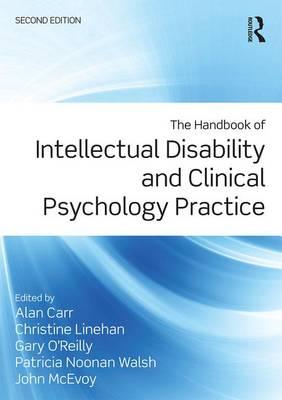Handbook of Intellectual Disability and Clinical Psychology

Handbook of Intellectual Disability and Clinical Psychology
The book is divided into eight sections:
Section 1: Covers general conceptual frameworks for practice - diagnosis, classification, epidemiology and lifespan development.
Section 2: Focuses on assessment of intelligence, adaptive behaviour, support needs, quality of life, and the processes of interviewing and report writing.
Section 3: Covers intervention frameworks, specifically active support, applied behavioural analysis and cognitive behaviour therapy.
Section 4: Deals with supporting families of children with intellectual disability, genetic syndromes and autism spectrum disorders.
Section 5: Covers issues associated with intellectual disability first evident or prevalent in middle childhood.
Section 6: Deals with adolescent concerns including life skills training, relationships and sexuality.
Section 7: Focuses on residential, vocational and family-related challenges of adulthood
PRP: 739.10 Lei
Acesta este Prețul Recomandat de Producător. Prețul de vânzare al produsului este afișat mai jos.
665.19Lei
665.19Lei
739.10 LeiLivrare in 2-4 saptamani
Descrierea produsului
The book is divided into eight sections:
Section 1: Covers general conceptual frameworks for practice - diagnosis, classification, epidemiology and lifespan development.
Section 2: Focuses on assessment of intelligence, adaptive behaviour, support needs, quality of life, and the processes of interviewing and report writing.
Section 3: Covers intervention frameworks, specifically active support, applied behavioural analysis and cognitive behaviour therapy.
Section 4: Deals with supporting families of children with intellectual disability, genetic syndromes and autism spectrum disorders.
Section 5: Covers issues associated with intellectual disability first evident or prevalent in middle childhood.
Section 6: Deals with adolescent concerns including life skills training, relationships and sexuality.
Section 7: Focuses on residential, vocational and family-related challenges of adulthood
Detaliile produsului













